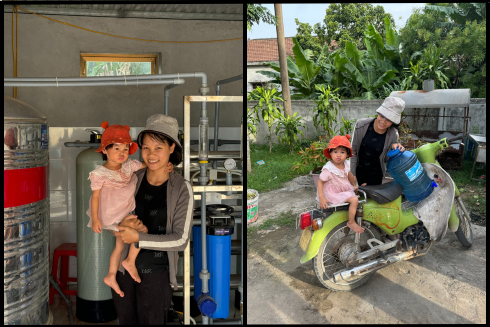NAPLAN shouldn’t be a stressful time
NAPLAN, Australia’s national assessment program – literacy and numeracy, is underway, with about 1.3 million students across the country in Years 3, 5, 7, and 9 participating. Despite the challenges posed by recent weather disruptions in northern NSW and southeast Queensland, schools are preparing for this annual assessment, which measures students’ proficiency in key areas such as numeracy, reading, writing, spelling, grammar, and punctuation.
Associate professor Steven Lewis from Australian Catholic University said NAPLAN should not be seen as a defining measure of a student’s future, saying it is just a snapshot of where students are at a particular point in time. It was important to avoid overemphasising the test and to focus on evidence-based teaching that meets individual student needs.
Additionally, Dr Florence Gabriel from the University of South Australia highlighted concerns about test anxiety, especially among older students and those with existing math-related anxiety. She urges educators to create a supportive testing environment to minimise stress and ensure that assessments serve their intended purpose without compromising student wellbeing.
The Australian Curriculum, Assessment and Reporting Authority, in response to concerns about the program, has made improvements, such as releasing results more quickly, allowing for timely interventions and support.
Calls for more teachers in WA
A leading WA education expert says building new schools will not solve the state’s education crisis unless the chronic teacher shortage is addressed.
Dr Saul Karnovsky, a senior lecturer at Curtin University, warns that new schools are ‘simply buildings’ without enough teachers to staff them. He argues that excessive workloads, poor work-life balance, and a lack of support are driving teachers out of the profession.
Karnovsky calls for more funding, better resourcing of schools, and a shift away from excessive standardised testing and bureaucracy.
With WA’s growing population, overcrowding in schools remains a concern, particularly in regional areas. A 2023 report by the WA teachers’ union found that schools in these areas are in urgent need of local support services, rather than centralised solutions.
Kids in care not getting adequate health care
The Centre for Excellence in Child and Family Welfare is urging the Australian government to improve healthcare access for children in out-of-home care.
CEO Deb Tsorbaris said many young people in care faced physical, mental, and developmental health challenges but struggled to access the necessary healthcare, particularly in rural areas.
Research from 2022 found that one-third of young people in care had long-term physical health conditions, while almost half had mental health issues, both worsening during the COVID-19 pandemic. Many also age out of services without proper transition plans.
Aid cuts threaten progress for adolescent girls
A new report by UNICEF, Plan International, and UN Women warns that aid cuts are undermining progress for adolescent girls, putting them at greater risk of child marriage, violence and poverty. Despite advances in education and health, 122 million girls remain out of school, and one in four married girls experience violence. Plan International Australia CEO Susanne Legena urges continued investment to close education gaps and empower girls in policymaking to prevent setbacks in gender equality.
More help needed to bring clean water to Vietnam 
Thousands of families in Central Vietnam lack access to safe drinking water, facing health risks from pollution. Jesuit Mission Australia, in partnership with the Vietnam Province of the Society of Jesus, has installed Reverse Osmosis Ultraviolet water stations, benefiting more than 149,000 people. In 2025, they plan to build 20 more stations to help an additional 20,000 people. CEO Helen Forde emphasised the ongoing need for support to ensure access to clean water for all families.
Pictured: Nga and her daughter in front of the new water station. Then, collecting clean, safe drinking water for their family.
In brief
The Catholic Leadership Foundation has appointed Virginia Ryan as its inaugural chief executive officer. The Foundation, sponsored by the Daughters of Our Lady of the Sacred Heart, aims to empower lay Catholic leaders through high-quality formation programs and resources, in response to calls from the Australian Plenary Council and the Synod on Synodality.
What’s on
Neurodiversity Celebration Week (17-23 March 2025) challenges stereotypes about neurological differences. Register here and access resources here.
Media Internship Program: Apply by 5pm (AEDT), 21 March 2024, for a week-long Zoom program writing the September edition of Australian Catholics. Theme: Voices of hope. More info here.
2025 Young Voices Awards: Open to secondary and senior primary students, with categories in articles, photography, and digital media. Theme: Voices of hope. Learn more here.
Mission – One Heart, Many Voices Conference: 19-21 May 2025, Sydney. More at 2025.mohmv.com.au.
2025 Australian Catholic Education Conference: Register now for the 20-22 August event in Cairns. Find out more here.